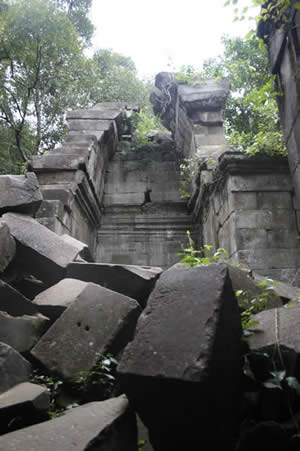
Dissolution
There is a close connection between ajapa and the Yoga of the Dissolution mentioned in the Gita. (Hints of it are also given in the Gita's eighth chapter.) The practice of dissolution has to be done throughout our life by this ajapa. Then only can life become immortal.
Death is the ultimate zero. The void is the ultimate principle. If you do not accept this, you can never realize the divine life; it simply cannot happen.
Inner Yoga, Sri Anirvan, Morning Light Press2007, P.24-25
This book by Sri Anirvan is highly recommended.
The basic principle of surrender, embodied in the left side of Gurdjieff's enneagram, and the prayer, Lord have Mercy, is essential to understanding both the inner action of Yoga, Islam, Christianity, and other religious disciplines, whether exoteric or esoteric. Meister Eckhart preached the fundamental requirement of a complete surrender to the divine; Ibn al 'Arabi equally so.
Man must first develop an ego— a real ego, not the ersatz version of ego (which Gurdjieff referred to as "false personality") as embodied in the right side of the enneagram and the prayer, I am — I wish to be. This is a microcosmic mirror of the creation of the material world, the embodiment of the transcendent in the immanent.
Following this, he must surrender all of that to God; This is the microcosmic mirror of the inevitable end of all materiality and its return to the transcendent.
Outward life, and all that it entails, including all of its ordinary forms of suffering, belong to the right side of the enneagram, and the action of I am— I wish to be. All of these actions are lawfully required, but only through conscious effort — an acceptance of the conditions and a willingness to meet them — can they be fulfilled according to divine requirements.
Inward life, along with the inner meaning of intentional suffering, surrender to God, all belong to the action of dissolution.
Conscious labor is the shock necessary for life: Intentional suffering is the shock necessary for death.
Of the two, death ultimately has the greater value. This seems to us to be either a paradox, or a threat.
Yet without an understanding of this mystery, as Sri Anirvan says, the divine life is unattainable.